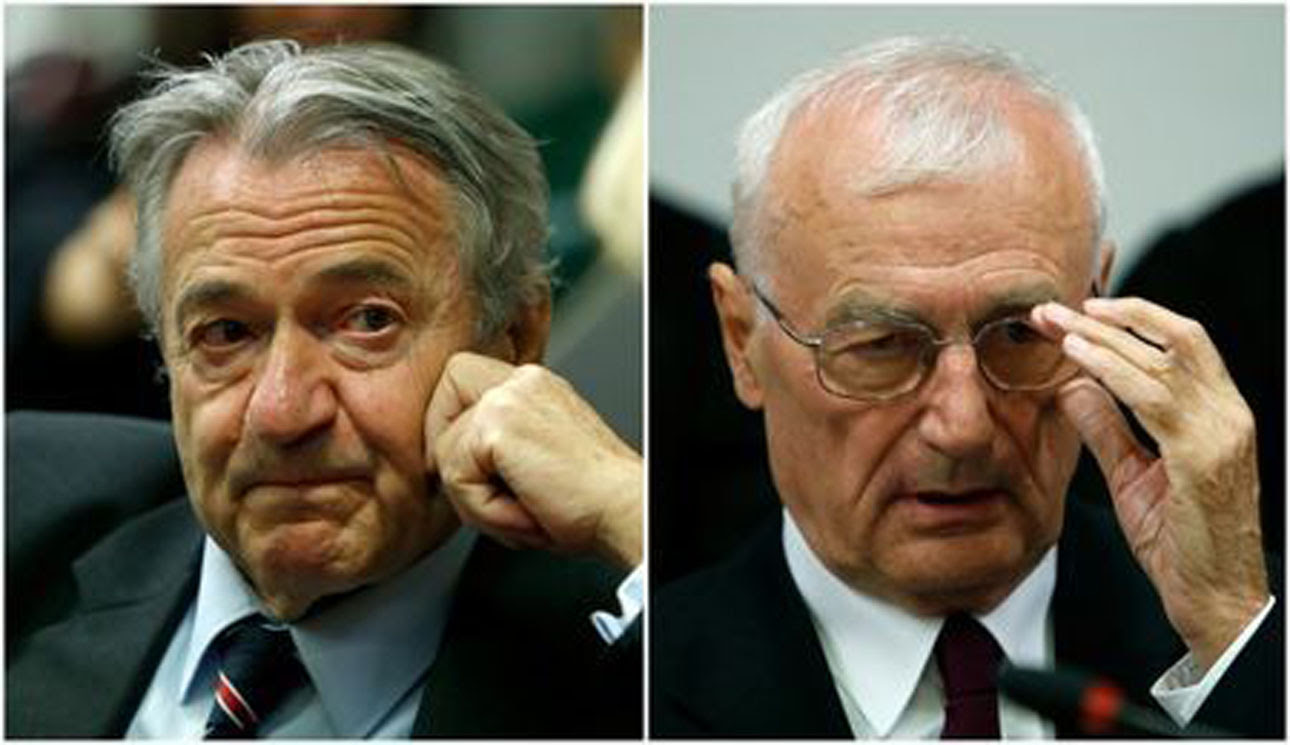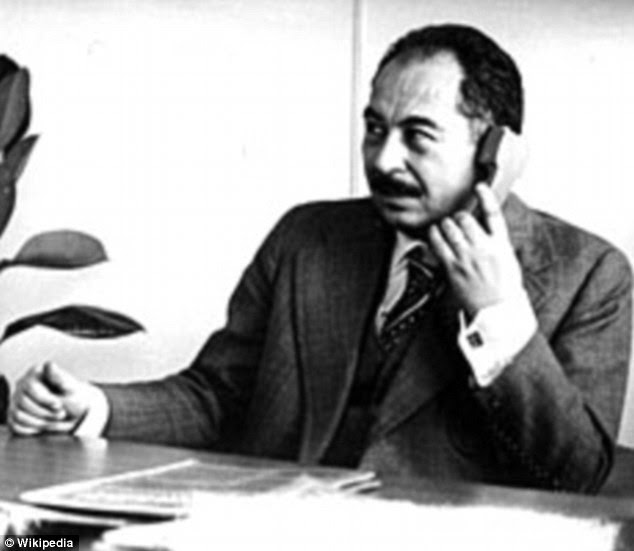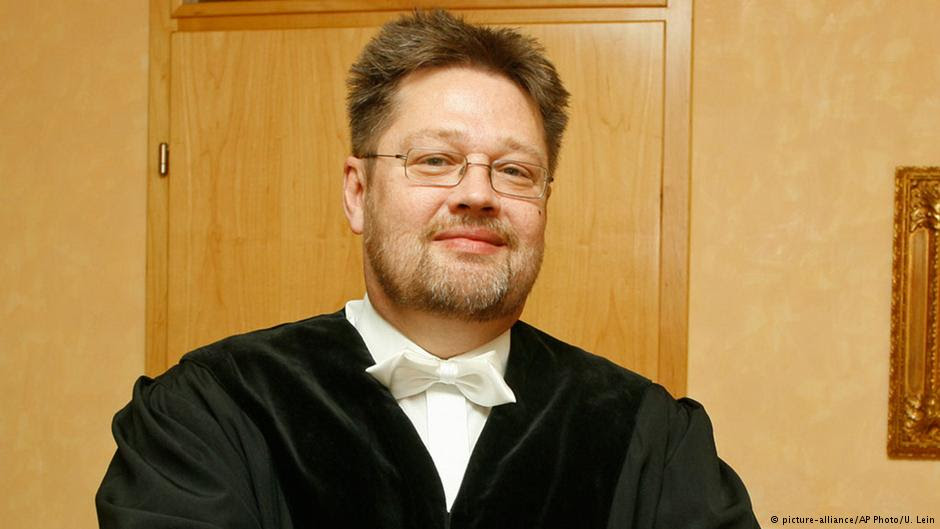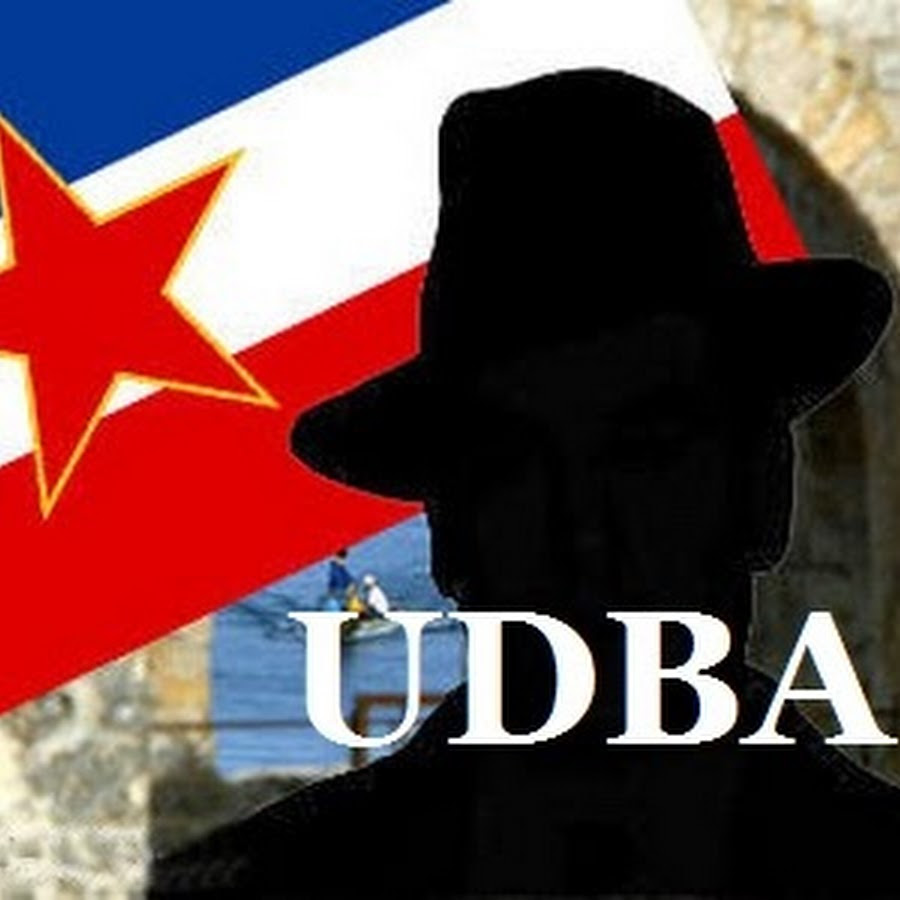
Zdravko Mustac (L) Josip Perkovic (R)
Sentenced to life imprisonment
in relation to communist crimes of complicity in murder
of Croatian dissident
Stjepan Djurekovic
Croatia’s former Social Democrat (formerly known as League of Communists) government led by Zoran Milanovic as PM, as well as president Ivo Josipovic, had tried their utmost to avoid the extradition to Germany of former communist Yugoslavia secret police/UDBA operators, Josip Perkovic and Zdravko Mustac. They even passed a law in July 2013(known as Lex Perkovic) three days before Croatia joined the EU, that prevented the extradition of Croatian citizens to other countries for crimes committed before 2002, hence ensuring no crime committed under the sheet of communist purges during the time of former Yugoslavia would be brought before the court regardless of the fact that in a civilised world murder has no statute of limitations. After Croatia’s courts had in 2014 ruled that Perkovic and Mustac could be extradited to Germany, extradition soon followed and the former head of Yugoslavia’s secret service, Zdravko Mustac, and a one-time subordinate, Josip Perkovic faced trial over accusations regarding the 1983 killing of a Croatian dissident in Bavaria, Stjepan Djurekovic for the first time in Munich in October 2014.
The German court in Munich had Wednesday 3 August 2016 found guilty of complicity in murder and sentenced the two former top Yugoslavian spies (spy chief Zdravko Mustac, 74, and ex-agent Josip Perkovic, 71) to life imprisonment for the 1983 murder of the Croatian national Stjepan Djurekovic, who was opposed to Yugoslav communist regime, in the then West Germany.

Stjepan Djurekovic
"The court finds that the accused Zdravko M. had asked the accused Josip P. to plan and prepare for the murder of Stjepan Djurekovic," the court said in a statement, Deutsche Welle reports. The state prosecution had in its final words last week turned the crime of assisting in murder into participating or complicity in murder with intent, which carries a life sentence under German laws.
Djurekovic was one of 22 Croatians murdered on orders from Belgrade (Serbia/Yugoslav capital) in Germany between 1970 and 1989. Most of those cases remain untried. This time around, prosecutors successfully argued that the spies had sought to silence Djurekovic who had information about alleged illegal business dealings by the son of a leading Yugoslav politician. Djurekovic was killed (shot and bludgeoned with a meat clever) in a garage that was used as a print office in the Bavarian town of Wolfratshausen. He was shot multiple times and hit with a cleaver by three still unidentified people.
"The prime motive was to kill a regime critic, a separatist," Manfred Dauster, the presiding judge, told the court on Wednesday. "Djurekovic

Judge Manfred Dauster
was to be muzzled - politically, but also physically."
The finding was based on the fact that at the time, 1983, Zdravko Mustac was the chief of the Croatian arm of Yugoslav State Security Service
(more commonly known as State Security Administration/UDBA) while Josip Perkovic was in the position of head of Zagreb UDBA Section II (in charge of the department dealing with Croatian émigrés abroad) and was the immediate superior of the spy Krunoslav Prates (convicted 2008 and sentenced to life imprisonment for participating the murder of Stjepan Djurekovic) - Judge Manfred Dauster explained.
The defense had sought acquittal, citing a lack of evidence. Attorneys for Perkovic and Mustac plan to appeal the verdict to Germany's federal high court. Should the sentences stick, Perkovic and Mustac could apply to serve them back home and if appeal does not succeed and life sentence stays then in Croatia that would translate to 40 years prison.
A reaction to this finding by Zoran Milanovic, leader of Social Democrats who is running as PM hopeful in the coming September elections, included “I am shocked by that court judgment … if it’s true (they committed those crimes) then they have received the most lenient of sentences … I regret this decision was not made in Croatia.”
What a repulsive, odious, low-life of a politician.
It was he, Zoran Milanovic, who headed to moves in 2013 in refusing to act on EU arrest warrants, who headed the government that introduced the law against extradition in 2013, it was he, Zoran Milanovic, who fought tooth and nail not to help the trial against Perkovic and Mustac get off the ground in Germany or anywhere else for that matter. It was, it is he, Zoran Milanovic, who leads all blockades against the processing of communist crimes.
Up until now, the need, the will and the ways to process and punish the horrific crimes committed for and on behalf of the communist regime of former Yugoslavia (including Croatia) had not truly or substantially found their effective expression. Many attempts have been sabotaged and alleged perpetrators and accomplices protected by those who call themselves antifascists (former communists, nostalgics for Yugoslavia). Those who pursued justice for victims of communist crimes were and still are branded fascists, revisionists, Nazis, Ustashas… To demonstrate the depravity of former communists’ sense of justice one can only revisit the 2014 trial against late Josip Boljkovac (friend of former president Stjepan Mesic, who is currently trying to resurrect himself into politics by being included on Social Democrats' election ticket) relating to the murder in 1945 after WWII had ended of 21 innocent people where the Croatian court found that Josip Boljkovac was not really to blame (even if there were strong indications of his complicity in some body of evidence before the court) for their murder (or bear any responsibility) but that the real culprit was the communists system. How a system without people can murder people is only clear to former communists, it seems.
Many say the past should be left behind and we should all work towards the future but that stance in itself is cruel and unjust. It is a stance, without doubt, taken by those who have a great deal to lose and to admit. The only way to a better future is, in fact, to confront the past and punish all crimes against human life committed. The judgment brought down by the German court last week against Perkovic and Mustac puts names to the communist crimes perpetrated and this surely must serve as motivation and assistance in efforts to process as many communist crimes as possible. While national reconciliation is necessary, it would be a gross mistake to believe that collective amnesia and impunity will do any good. It will not because crime does not pay, in the end truth will out.
Seen as an absolute nightmare for 45 years after WWII by majority of Croatian émigrés, especially, and by most of those in Croatia in the HDZ/Croatian Democratic Union who were the driving force in the 1990’s creation of the modern independent state of Croatia, the baleful UDBA (communist secret service) managed to sneak through the recent war of Croatia’s secession (1991 – 1995) and survived the regime change/secession from Yugoslavia. It rallied behind the first president of Croatia Franjo Tudjman, in order to avoid “lustration”, with most of its senior executives becoming cogs in the new machinery of the new Croatian state, when they should have been lustrated or taken away from those positions. Ministries, the Parliament, media, big business, administrations, diplomacy — rare are public fields where these former “agents/suradnici” (aka “snitches”) don’t hold major positions. I guess such a mix was unavoidable in the beginnings, at times of war, but not for a moment longer.
If at last lustration does not occur in Croatia and new governments continue to be run by non-repentant old communists and their younger “liberal” offspring, the reticence or blatant refusal to pursue prosecution of communist crimes is bound to continue and the price to be paid is surely to be a form of eternal political unrest and intolerance.
 Born in 1946 as part of the Ministry of Home Affairs, the Yugoslav communist secret service, the UDBA, was conceived as a counter-intelligence agency and a political police, the latter being by far its most important task. The UDBA consisted of four major sectors (“internal enemy,” “hostile emigration,” “foreign espionage,” “high tech espionage”). It employed hundreds of agents, analysts, and agents (“suradnici”), as well as thousands of snitches, i.e. informants (“informatori”). Founded as a dense conspiratorial network, it operated in various regional centres in ex- Yugoslavia, being active in all towns and villages in each constituent ex-Yugoslav republic. Unlike the traditional modus operandi of many other communist countries, local UDBA centres in ex-Yugoslavia enjoyed a large degree of autonomy with each local centre supervising the agents in its respective area. However, the 2nd Section was also in charge of hiring its own quota of undercover agents abroad. Born in 1946 as part of the Ministry of Home Affairs, the Yugoslav communist secret service, the UDBA, was conceived as a counter-intelligence agency and a political police, the latter being by far its most important task. The UDBA consisted of four major sectors (“internal enemy,” “hostile emigration,” “foreign espionage,” “high tech espionage”). It employed hundreds of agents, analysts, and agents (“suradnici”), as well as thousands of snitches, i.e. informants (“informatori”). Founded as a dense conspiratorial network, it operated in various regional centres in ex- Yugoslavia, being active in all towns and villages in each constituent ex-Yugoslav republic. Unlike the traditional modus operandi of many other communist countries, local UDBA centres in ex-Yugoslavia enjoyed a large degree of autonomy with each local centre supervising the agents in its respective area. However, the 2nd Section was also in charge of hiring its own quota of undercover agents abroad.
The operatives of the 2nd Section were generally groomed for their prime targets: infiltration of Yugoslav and especially Croat émigrés abroad. As regards the Croatian emigration, the UDBA carried out at least 68 to 69 homicides, 5 abductions whose victims were later executed, 23 attempted murders (with several cases of severely injured victims), 4 abductions whose victims survived and 2 attempted kidnappings.
The 2nd Section in charge of émigrés, whom UDBA labelled as “hostile emigrants”, was particularly violent, as it didn’t hesitate to resort to “offensive” or “special” operations, i.e., assassinations. By bribing and manipulating common criminals (threatening them, or promising them impunity), by fabricating false documents and exerting the most infamous blackmails, it induced naive citizens in ex-Yugoslavia into suicidal plots, or framed them with offences they had never committed. In short, the 2nd Section run by Josip Perkovic – was quite simply an organised communist crime agency.
Efficient in its criminal plots, the UDBA did succeed in undermining the emigrants’ reputation by defaming them as “terrorists” in their host countries. For example, a famous case took place in Australia where, as a result of UDBA media manipulation, six young Croats (the “Croatian Six”) landed behind the bars for 15 years (see Hamish McDonald, “Framed: the untold story about the Croatian Six”, The Sydney Morning Herald of February 11th, 2012).

Robert Zagajski
In pursuit of truth about
his father's death
Today, the malodorous UDBA ghosts and other Yugoslavian cloak and dagger circles are still haunting Croatia (and other former Yugoslav states, although, to a seemingly lesser degree Serbia, which was the heart of communist crimes plots operations). Twenty-five years after Croatia’s independence scores of former UDBA hit men of the former Yugoslav regime have not yet been properly and absolutely held to account, nor have they ever atoned for their crimes. There are also several hundreds of mass graves and pits across Croatia filled with bones and remains of innocent victims of communist crimes, for which no one has yet been held responsible, not even the communist regime by name. As to murders committed by UDBA agents and operatives such as the one for which the court in Germany has prescribed a life sentence the hopes for justice burn loud. Robert Zagajski, for instance, was 17 when his father was killed on the orders of the Yugoslav secret service in 1983 – the judgment against Perkovic and Mustac has given him the greatest hope so far that his father Djuro’s brutal death will cease to be an enigma and that someone will be made to answer for it. Ina Vukic, Prof. (Zgb); B.A., M.A.Ps. (Syd)
VISIT DOCUMENTARY SITE: TITO’S MURDER SQUADS – here
|
|













































































Nema komentara:
Objavi komentar